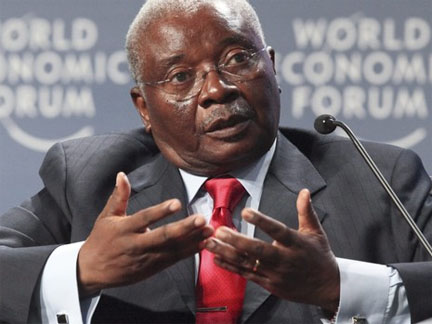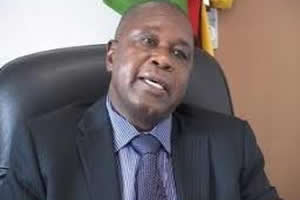Renamo reverts to armed banditry

MAPUTO. — Mozambican ex-rebel group Renamo staged a pre-dawn attack on a police station yesterday after declaring the end of a two-decade-old peace deal that ended one of Africa’s worst civil wars, officials and locals said. Police fled their post in the central town of Maringue when Renamo fighters opened fire in an escalation of hostilities between the ex-rebels and Frelimo, the ruling party.
“The Portuguese government is following with concern the situation reported in Gorongosa,” the foreign ministry said in a statement, also calling for the country “to quickly return to a normal situation so it can follow a path of economic development and social progress”.
Gunmen attacked the police station but fortunately there were no casualties because the policemen fled the post,” Maringue’s administrator Antonio Absalao told AFP by phone.
The town is located about 35 kilometres from Renamo’s military base, which government troops seized on Monday in an operation the ex-rebels claimed was aimed at killing their leader, Afonso Dhlakama.
“The situation is horrible here. Early this morning, armed men supposed to be Renamo attacked, and it was a mess,” said Romao Martins, a Maringue teacher.
“For one hour shooting could be heard from all directions and people fled from their homes,” he said.
Schools have been shut amid fears of an escalation in violence.
The United States said it “profoundly deplores” the resumption of violence, urging both parties to take “decisive steps to calm tensions”.
“We will welcome public declarations of representatives calling for peaceful solutions,” the US embassy in Maputo added in a statement.
A spokesman for Renamo – the Mozambique National Resistance, which became a political party with a parliamentary minority after the civil war – hinted that the group was responsible for yesterday’s attack.
“The president of Renamo has lost control of the situation and you cannot blame . . . (him) for what happens from here on,” Fernando Mazanga told AFP.
“The guerrillas are scattered and will attack without taking any orders,” he said.
But the declaration should be taken with a “pinch of salt”, said South African Institute of International Affairs researcher Aditi Lalbahadur.
“It’s very unlikely that you are going to see a return to war,” she told AFP.
Lalbahadur said that Renamo lacked the capacity to engage in a full-scale conflict and that war was not in the interests of the government with its more powerful armed forces.
“Mozambique is trying very much to attract foreign investment into the country so any type of political instability works to their disadvantage,” she said.
Heading into local government polls next month and a national vote in 2014, Mozambique has a history of election-related violence.
Renamo, which has faced dwindling political support, is demanding more representation on election bodies and in the armed forces.
The government has said it is open to electoral reforms, but accuses Renamo of refusing to budge in negotiations.
Tensions between the rival sides began escalating last year after Renamo leader Dhlakama set up camp in the Gorongosa mountains and began retraining former guerrilla fighters.
“You’re seeing a Renamo that has always ever spoken the language of war . . . and you’re seeing it again in a context where they have lost a lot of support over the years,” Lalbahadur said.
Charles Laurie, Africa expert with London-based risk analysts Maplecroft, agreed.
“I really see the extent of these recent incidents as in fact being a sign of weakening political prospects for Renamo whilst of course acknowledging that these are worrying military events, worrying incidents of conflict,” he said.
The army’s assault on Renamo’s base came after the former rebels attacked a government military unit last Thursday.
Defence ministry spokesman Custodio Chume said the assault was in response to that attack.
Renamo fought the Frelimo-led government for 16 years in a civil war that erupted following Mozambique’s independence from Portugal in 1975. It lasted until 1992 and resulted in the deaths of around one million Mozambicans.
Portugal late on Monday voiced its concern about the mounting tensions in its former southern African colony.
The Renamo spokesman said Monday’s attack on its base “marks the end of multiparty democracy” in Mozambique. – AFP/Reuters.











Comments